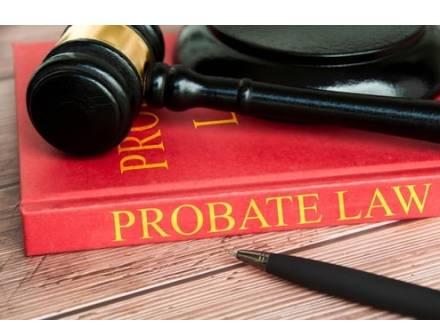Personalized Legal Services in Barrington & Schaumburg, IL
We speak English, Ukrainian and Russian languages
| Personal Injury |
Business Law |
Real Estate Law |
Wills, Trusts & Probate |
General Civil Litigation |
Elder Law |
Recent Blog Posts
Can My Power of Attorney Agent Take Advantage of Me?
 A power of attorney can have many forms. They are designed to give your chosen agent the authority to make decisions on your behalf if you become incapacitated. Many people going through the estate planning process are reluctant to give someone else that much power, wondering how far the decision-making authority extends.
A power of attorney can have many forms. They are designed to give your chosen agent the authority to make decisions on your behalf if you become incapacitated. Many people going through the estate planning process are reluctant to give someone else that much power, wondering how far the decision-making authority extends.
As Barrington estate planning attorneys with extensive experience, we may recommend designating trusted agents with powers of attorney, along with trusts, wills, and other tools, to ensure that your affairs are handled properly. We understand your concerns and will draft documents that clearly specify the agent’s scope of authority and protect your interests.
What Is a Durable Power of Attorney in Illinois?
Under the Illinois Power of Attorney Act, individuals have the right to name an agent to make certain decisions under certain circumstances. You may have multiple powers of attorney, granted to different agents for different purposes. Each can be limited and very specific or quite broad, depending on your wishes. By law, your agent is required to act in your best interests.
Who Pays If I Am Hurt in a Head-On Car Collision?
 On March 23rd, 2025, a Chevrolet truck headed westbound in the eastbound lanes of I-290 in Hillside caused a multiple-vehicle crash involving three other vehicles. One man was killed, another had non-life-threatening injuries, and the wrong-way driver suffered life-threatening injuries. Only one driver was not hurt in the car accident.
On March 23rd, 2025, a Chevrolet truck headed westbound in the eastbound lanes of I-290 in Hillside caused a multiple-vehicle crash involving three other vehicles. One man was killed, another had non-life-threatening injuries, and the wrong-way driver suffered life-threatening injuries. Only one driver was not hurt in the car accident.
If you are injured in a head-on collision, you could be entitled to compensation. Our experienced Barrington, IL car accident lawyer can evaluate your accident and explain your legal options.
Why Are Head-On Collisions Dangerous?
Head-on collisions often produce serious injuries. In 2023, there were 2,682 head-on crashes in Illinois. Of those accidents, 138 resulted in deaths, 1,242 caused injuries, and 321 caused incapacitating injuries.
What Is a Living Trust, and Why Would I Need One?
 Planning for your death is uncomfortable for most people, but estate planning has multiple benefits for you and your beneficiaries. Regardless of your age and income level, it is never too early to start planning, especially if you have young children. A living trust, also called an Inter Vivos Trust, is a legal document that can give you better control of how your assets will be distributed after you die. It is not a substitute for a will, but living trusts are often created in conjunction with wills.
Planning for your death is uncomfortable for most people, but estate planning has multiple benefits for you and your beneficiaries. Regardless of your age and income level, it is never too early to start planning, especially if you have young children. A living trust, also called an Inter Vivos Trust, is a legal document that can give you better control of how your assets will be distributed after you die. It is not a substitute for a will, but living trusts are often created in conjunction with wills.
If you want to help your beneficiaries avoid probate, a living trust may be a good option. To ensure that your living trust is properly drafted, you should work with an experienced Barrington, IL estate planning attorney.
Why Do Insurers Offer a Fast Payout for Catastrophic Injury?
 Sometimes, people walk away from an accident unscathed, while others sustain catastrophic and life-threatening injuries. Brain and spinal cord injuries are some of the worst because even if victims recover, their lives may be permanently altered. Insurers often offer fast settlements after catastrophic injuries in hopes the victims do not realize they may be entitled to much more.
Sometimes, people walk away from an accident unscathed, while others sustain catastrophic and life-threatening injuries. Brain and spinal cord injuries are some of the worst because even if victims recover, their lives may be permanently altered. Insurers often offer fast settlements after catastrophic injuries in hopes the victims do not realize they may be entitled to much more.
What kinds of accidents can lead to spinal cord and brain injuries? How can these injuries affect victims long-term? An experienced Barrington, IL personal injury attorney can calculate your damages and fight to maximize your compensation.
How Can Catastrophic Injuries Happen?
Almost any type of accident can produce serious injuries, but some of the most common causes include motor vehicle collisions, falls, and construction accidents. Assault victims may also suffer catastrophic injuries. When these injuries are caused by another party's intentional act or negligence, you may be eligible to file a claim against them for compensation.
Illinois Estate Planning Guide: FAQs and Legal Terms
 You have probably heard the term "estate planning" but are unsure exactly what it means and includes. If you have begun to research, you have likely seen a lot of unfamiliar legal terms. Before developing an estate plan, you need to understand what it is, how it can benefit you and your beneficiaries, and what the terms mean. Working with a knowledgeable Barrington, IL estate planning attorney can provide the answers and assistance you need.
You have probably heard the term "estate planning" but are unsure exactly what it means and includes. If you have begun to research, you have likely seen a lot of unfamiliar legal terms. Before developing an estate plan, you need to understand what it is, how it can benefit you and your beneficiaries, and what the terms mean. Working with a knowledgeable Barrington, IL estate planning attorney can provide the answers and assistance you need.
Legal Terms Used in Estate Planning
You cannot make informed decisions if you do not grasp what these legal terms mean:
-
Administrator: A court-appointed person who manages an estate after its owner dies, whether without a will or if the named executor cannot fulfill her duties.
-
Assets: Anything a person owns, including personal possessions, financial accounts, investments, and real estate.
Holiday Accidents, Injuries, and Personal Injury Claims
 With the holiday season upon us in Illinois, parties, family gatherings, shopping, and various events keep many schedules busy. Along with family quality time and fun, accidents can also happen during this season, leaving you with injuries, pain, and mounting expenses. If your accident was caused by someone else's negligence, you may qualify for compensation through a personal injury or premises liability claim.
With the holiday season upon us in Illinois, parties, family gatherings, shopping, and various events keep many schedules busy. Along with family quality time and fun, accidents can also happen during this season, leaving you with injuries, pain, and mounting expenses. If your accident was caused by someone else's negligence, you may qualify for compensation through a personal injury or premises liability claim.
What kinds of accidents happen frequently during the winter holiday season? How do you know if you are eligible for compensation? A Barrington, IL lawyer from Lucas Law can evaluate your circumstances and eligibility during a free consultation.
What Kinds of Accidents Are Common During the Holidays?
Many types of accidents can turn holiday cheer into painful or life-threatening situations, including:
-
Drunk driving accidents
How Can I Help My Beneficiaries Avoid Probate in Illinois?
 Some people who are meticulous planners otherwise do not take time for estate planning. While contemplating your own death is uncomfortable, you may leave your family facing a mountain of problems after you pass if you do not prepare.
Some people who are meticulous planners otherwise do not take time for estate planning. While contemplating your own death is uncomfortable, you may leave your family facing a mountain of problems after you pass if you do not prepare.
Probate is a term you have probably heard but do not understand. What is probate? How could it affect your beneficiaries? Can you do anything to help them avoid it? The experienced Barrington, IL lawyers at Lucas Law can help you understand probate and decide how to plan for it.
What Is Probate?
When someone dies, they likely have assets and debts. Whether or not the deceased has a will, probate courts use those assets to pay debts and distribute the remaining assets among beneficiaries. If you do have a will, the court should abide by your wishes regarding property division. If not, the court will decide.
The probate process includes notifying the courts of the death, assessing personal and real property values, listing outstanding debts, and presenting a will for verification, if applicable. An open period for creditors to make claims against the estate lasts for six months. Your estate includes all of your assets, even if you do not have many.
What Can I Do If I Was Injured in an IL Hit-and-Run?
 Dealing with an insurance claim after being injured in a car accident is bad enough when you know the identity of the driver who hit you. When that driver flees the scene, it literally adds insult to injury.
Dealing with an insurance claim after being injured in a car accident is bad enough when you know the identity of the driver who hit you. When that driver flees the scene, it literally adds insult to injury.
What should you do after a hit-and-run collision? Can you still get a settlement? Working with a knowledgeable lawyer from Lucas Law can alleviate your stress and make the process smoother. Call us now for your free consultation.
Why Do At-Fault Drivers Leave Accident Scenes?
Although Illinois laws require anyone involved in a crash to stay at the scene until police officers respond, not everyone does. Common reasons that drivers flee include:
-
Impaired judgment due to alcohol or drugs
What Happens If You Die Without a Will in Illinois?
 Many people mistakenly believe that they do not need a will or that estate planning is unnecessary. Whether due to a younger age, few assets, or thinking, "There will be time for that later," the lack of a will can have many consequences for your surviving family, especially if you have minor children.
Many people mistakenly believe that they do not need a will or that estate planning is unnecessary. Whether due to a younger age, few assets, or thinking, "There will be time for that later," the lack of a will can have many consequences for your surviving family, especially if you have minor children.
Whether you need to create or update a will or estate plan, the skilled estate planning lawyers from Lucas Law can help.
What Does "Dying Intestate" Mean?
This legal term refers to someone dying without a will in place that designates beneficiaries, division of assets, and guardianship for minor children. If this happens, the State of Illinois has laws that govern who can get your assets and how they are distributed. Various potential situations are addressed in these laws to cover things like:
How Can Social Media Affect My Personal Injury Case?
 For better or worse, social media is an integral part of our lives. While you might enjoy how it helps you stay connected and share experiences with others, you should also be cautious about what you post, especially if you are in the midst of a personal injury case. This article will explain some of the ways that your case can be affected by your social media posts and what you can do to help. If you have more questions, speak with a skilled Barrington, IL personal injury lawyer.
For better or worse, social media is an integral part of our lives. While you might enjoy how it helps you stay connected and share experiences with others, you should also be cautious about what you post, especially if you are in the midst of a personal injury case. This article will explain some of the ways that your case can be affected by your social media posts and what you can do to help. If you have more questions, speak with a skilled Barrington, IL personal injury lawyer.
Gathering Evidence
Anything you post on social media can be evidence in a personal injury case. Defense lawyers and insurance companies often scrutinize social media to find anything that could discredit your claim. Any photos that show you doing something seemingly inconsistent with your reported injuries can be used by the other side to show that you were not hurt as severely as you say. Something you post about your daily life could be misinterpreted to show that you are not suffering as much as you claim to be.















